Our Laboratory
At Monash IVF, our laboratories are the foundation of everything we do. Across Australia, our state-of-the-art facilities combine advanced technology, deep scientific expertise, and decades of experience to give every patient the best chance of building a family. With more than 50 years of leadership in reproductive science, our labs apply the latest scientific advancements to support fertilisation, embryo development, and implantation, with every process guided by current research, carefully optimised and performed with the highest standards of safety and precision.
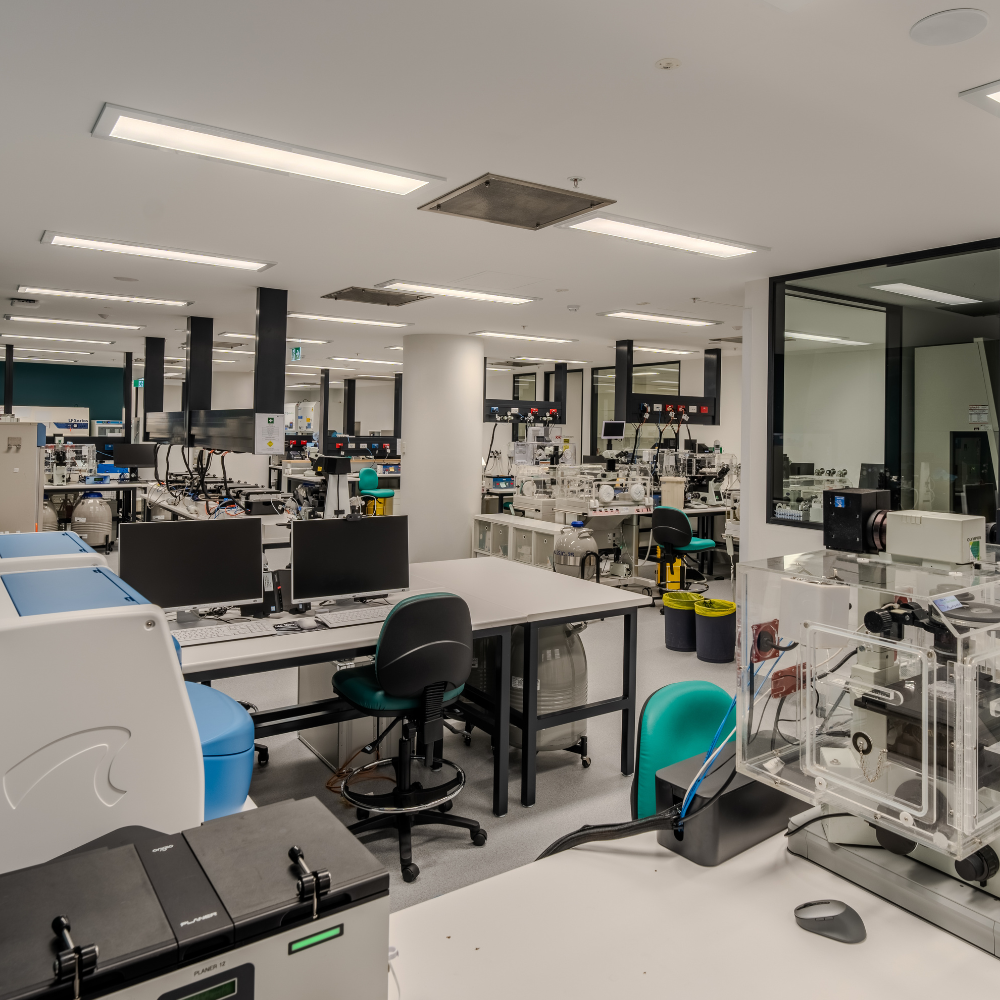
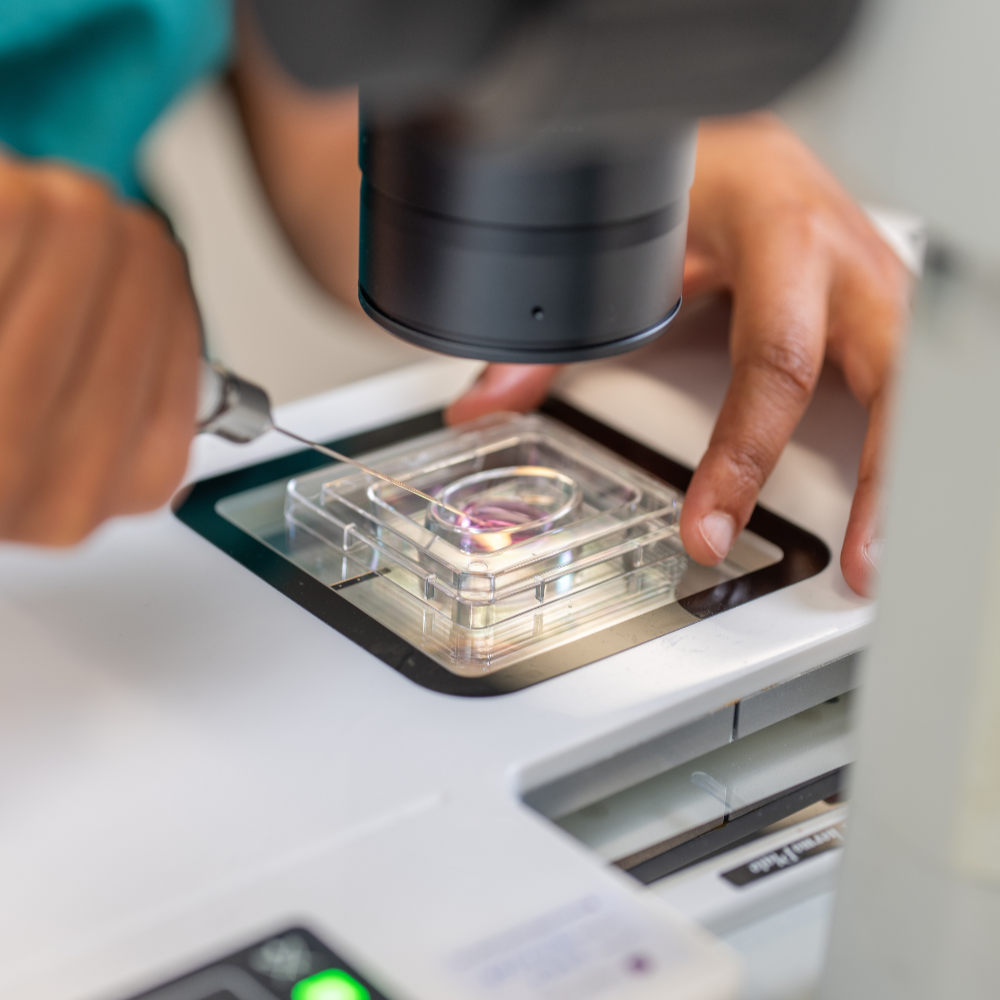
The Technology and Expertise Powering Fertility Success
Our laboratories support the most advanced fertility treatments, including intracytoplasmic sperm injection (ICSI) and embryo biopsy. Our team of highly skilled embryologists are trained to perform these complex techniques in controlled environments, with precision-engineered instruments to bring about high rates of success for our patients.
The laboratory also plays a vital role with less complex treatments like intrauterine insemination (IUI). Our sperm processing technologies are used to isolate and prepare the highest quality sperm, ensuring only the healthiest and most motile are used for insemination. Our clinicians, nurses and scientists coordinate preparation with ovulation timing to ensure insemination occurs at the most fertile moment.
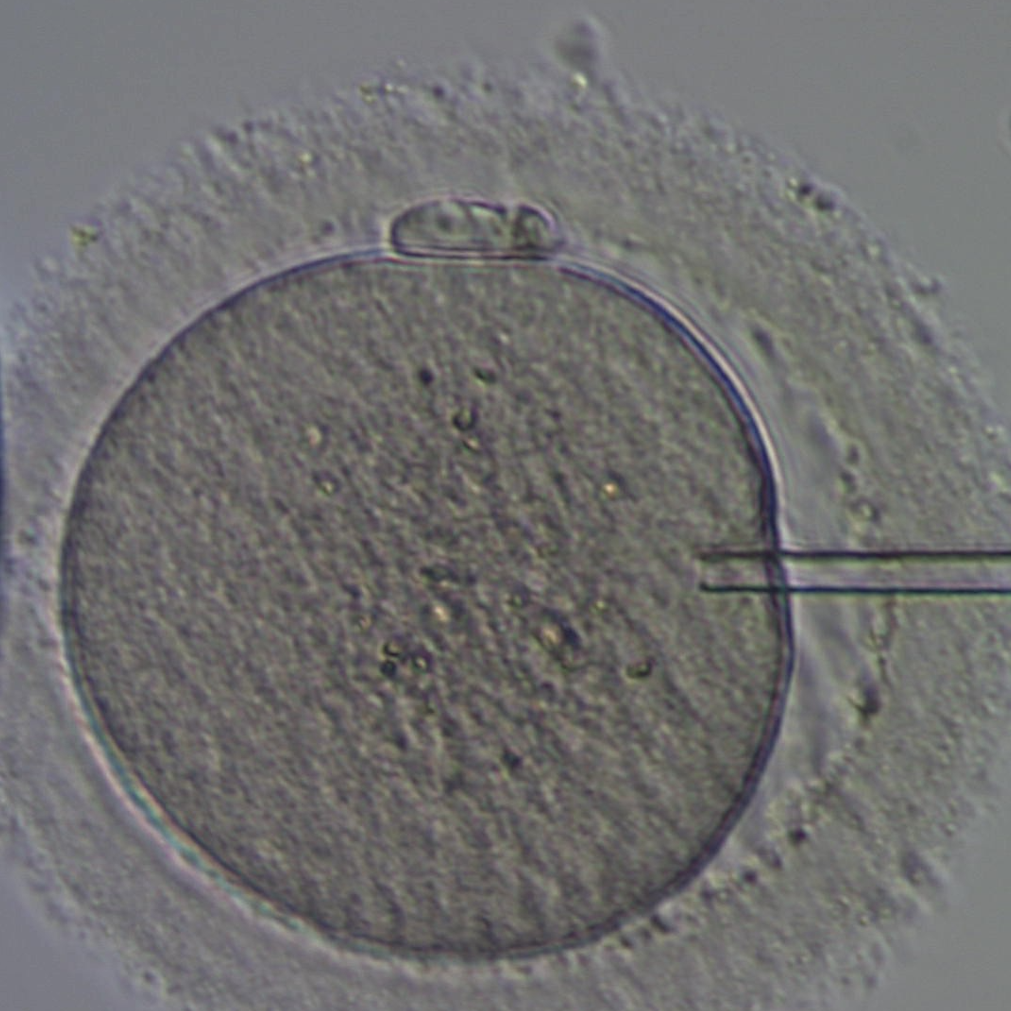
Specialised Techniques – ICSI & Piezo ICSI
For ICSI, our labs use specialised micromanipulation workstations that provide a stable, uninterrupted environment that mimics the conditions required for successful fertilisation. Embryologists inject a single sperm directly into an egg with microscopic precision using high-resolution inverted microscopes and Hoffman optics to provide detailed visualisation of eggs and sperm throughout this procedure.
In certain situations, your clinician may recommend the use of Piezo ICSI (Piezo-assisted intracytoplasmic sperm injection). This process differs from conventional ICSI by using piezoelectric pulses to gently create an opening in the egg membrane. This highly specialised technique can result in smoother sperm insertion with minimal disruption to the egg’s internal structures. Research has shown that Piezo ICSI may offer benefits in selected cases, such as patients with fragile eggs. Because conventional ICSI is safe and highly effective for most patients, Piezo ICSI is reserved for very specific clinical circumstances. Your fertility specialist will discuss with you if this approach is appropriate for your treatment.
Our combination of advanced technology, precise environmental control, and expert scientific skill and knowledge enables us to deliver fertility treatments with exceptional accuracy and safety.
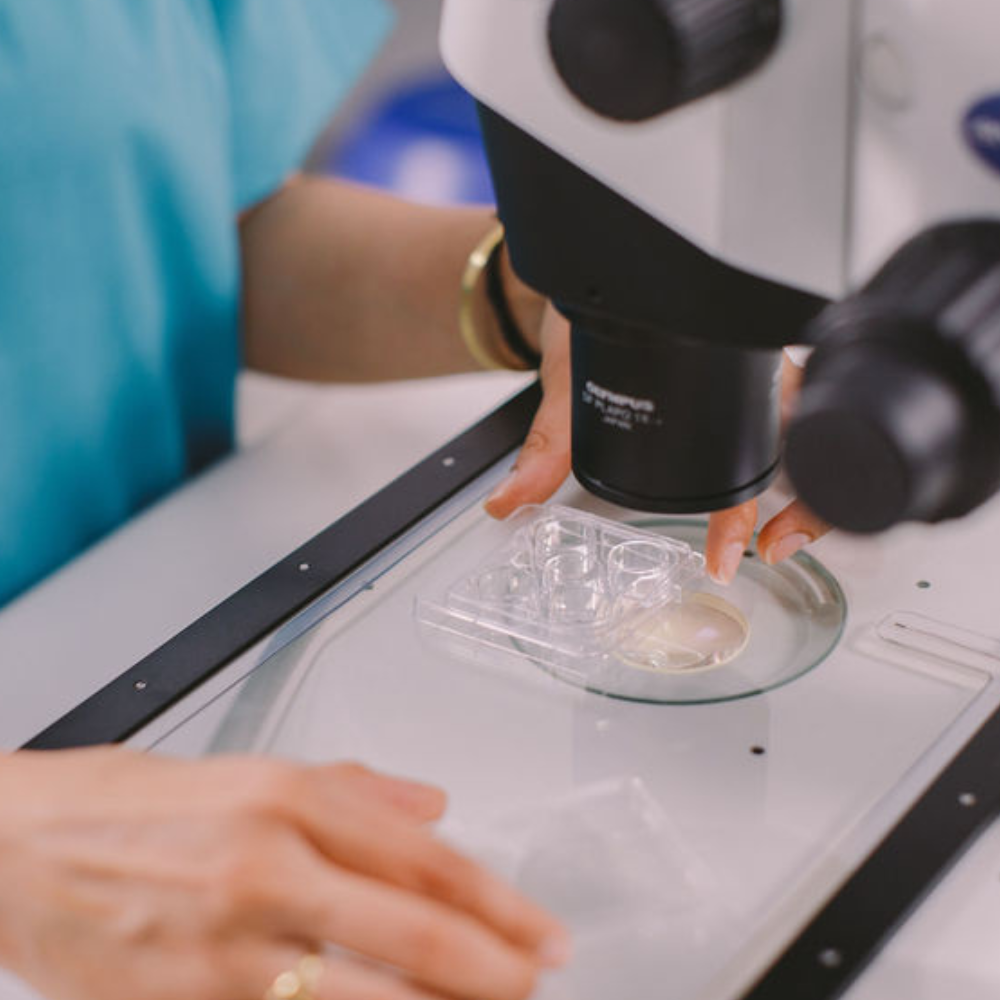
Culture Media
The environment in which gametes and embryos are handled and cultured during IVF is critically important to their health and development. In our laboratories, embryos are nurtured in carefully designed culture media that closely mimics the natural conditions of the female reproductive tract. We utilise Vitrolife’s Gx Media system, a next-generation suite of media designed with integrated triple-antioxidant protection. These media provide the essential nutrients, energy sources, and protective factors embryos need to progress from fertilisation through to the blastocyst stage.
Gx Media spans all key steps of the IVF process and is tailored to support each stage of embryo development while maintaining stable conditions within the incubator. By using this advanced system, our team can provide embryos with a consistent and optimised environment, giving them the best chance to develop into strong, healthy blastocysts that are ready for transfer.
At the time of embryo transfer, we also use EmbryoGlue® for all our patients. EmbryoGlue® contains a high concentration of hyaluronan, a substance naturally found in the female reproductive tract, which supports communication between the embryo and the uterine lining. This helps create a receptive environment for implantation and has been shown in clinical studies to improve the chances of successful pregnancy*.
Specialised Media
While Vitrolife’s Gx Media and EmbryoGlue® form the foundation of our culture system, in some circumstances we may select alternate specialised media if additional biological support is recommended. These are carefully selected by our scientific team in consultation with your fertility specialist, based on individual patient needs.
For Embryos
EmbryoGen® and BlastGen®: This media contains growth factors and signalling molecules that mimic the early embryo–maternal environment, helping support cellular communication and development. Evidence suggests this media may be beneficial for patients with recurrent implantation difficulties or pregnancy loss. Please consult with your clinician as to whether this option is available at your clinic.
For Eggs
CultActive® (Gynemed High-Calcium Medium): Calcium plays a central role in egg activation and early embryonic signalling. CultActive® is a specialised high-calcium medium designed to improve fertilisation in select patients that experience significant fertilisation deficits.
For Sperm
SpermSlow® (Cooper Surgical): Used during ICSI procedures, SpermSlow® contains hyaluronan to mimic natural sperm–egg binding. This aids embryologists in identifying and selecting mature sperm with intact DNA in cases where high DNA fragmentation rates have been identified in a semen analysis. Your fertility specialist will discuss with you if this approach is appropriate for your treatment.
GM501 SpermMobil® (Gynemed High-Sperm Activating Medium): SpermMobil® is a special solution used in ICSI cases to help identify living sperm in samples where very few or no sperm are moving. It works by gently stimulating immotile sperm so embryologists can see which ones are alive and suitable for fertilisation. This can be especially helpful for patients with very low sperm motility and for those using sperm retrieved surgically (such as from testicular tissue). Studies have shown that using SpermMobil® is safe and does not affect pregnancy outcomes. Your fertility specialist will discuss with you if this approach is appropriate for your treatment.

EmbryoScope Technology and Continuous Monitoring
Embryo development is a crucial factor influencing IVF success. To give embryos the best chance, our laboratories use advanced time-lapse incubation systems, known as EmbryoScope technology. These incubators maintain optimal conditions for embryo growth, regulating temperature, pH, and atmosphere, while integrated cameras capture detailed, real-time images of every stage of development, from fertilisation through to blastocyst formation.
Unlike traditional methods, which require embryos to be periodically removed from the incubator for assessment, time-lapse technology allows for continuous monitoring without ever disturbing the embryo’s environment. This uninterrupted observation provides embryologists with unique insights into cellular changes and developmental milestones that may otherwise be missed. With a complete visual record of each embryo’s development, our team can assess embryo development with greater precision, improving selection of those with the highest potential for implantation.
This approach can increase the likelihood and reduce the time taken to establish a successful pregnancy. Time-lapse incubation has become a cornerstone of our laboratory practice, enabling us to minimise disruption, enhance embryo selection, and maximise the chances of success.
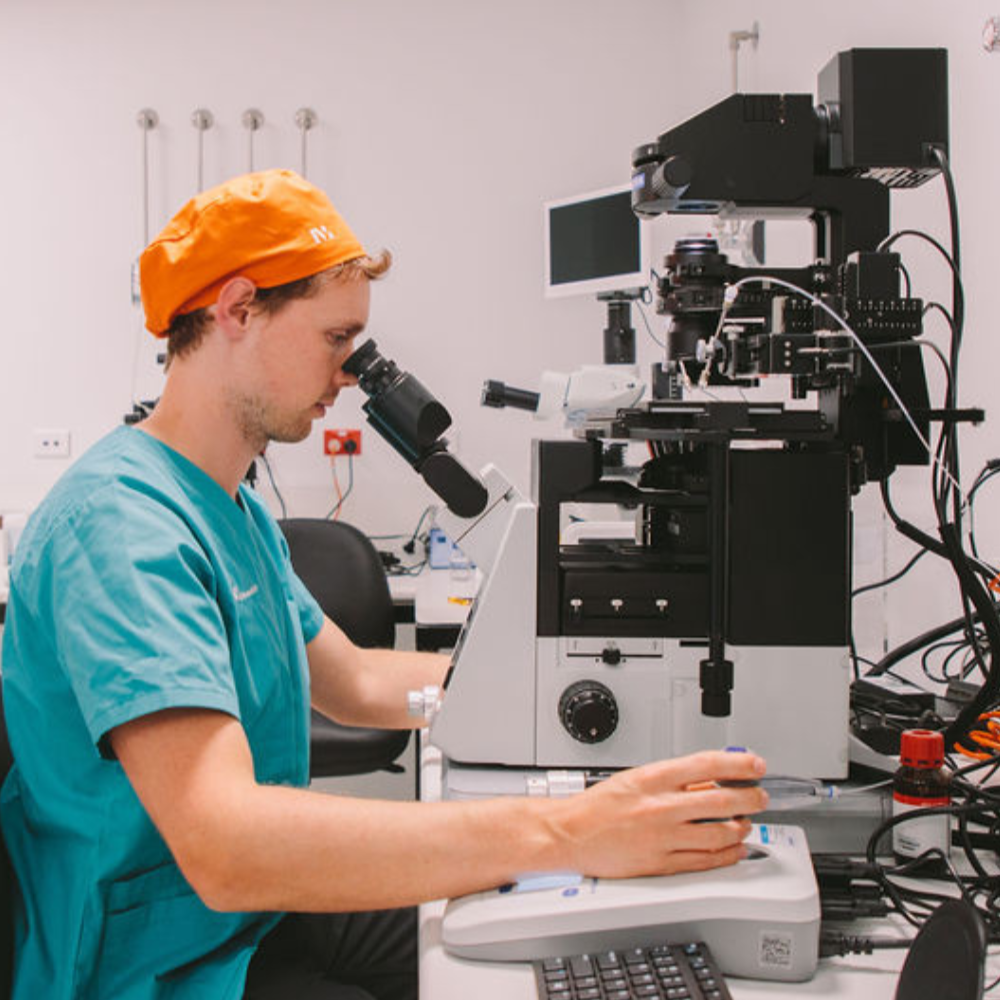
Genetic Testing and Screening
Embryo biopsy and genetic testing are essential tools in modern fertility science. On day five or six of development, our embryologists can safely remove a few cells from the trophectoderm (the cells that will ultimately form the placenta) for detailed genetic analysis. This process can identify genetic changes at the level of individual genetic instructions through to whole chromosomes. This level of genetic insight is particularly important for patients with recurrent pregnancy loss, previous IVF failures, or a known high chance of having a pregnancy with a genetic condition.
We utilise advanced DNA fingerprinting technology to ensure that our results have the highest level of accuracy and can identify whether the genetic changes have been inherited from the egg or the sperm. By providing this valuable information, we can identify embryos which have a higher chance of establishing an ongoing pregnancy and reduce the risk of an unsuccessful embryo transfer and miscarriage.
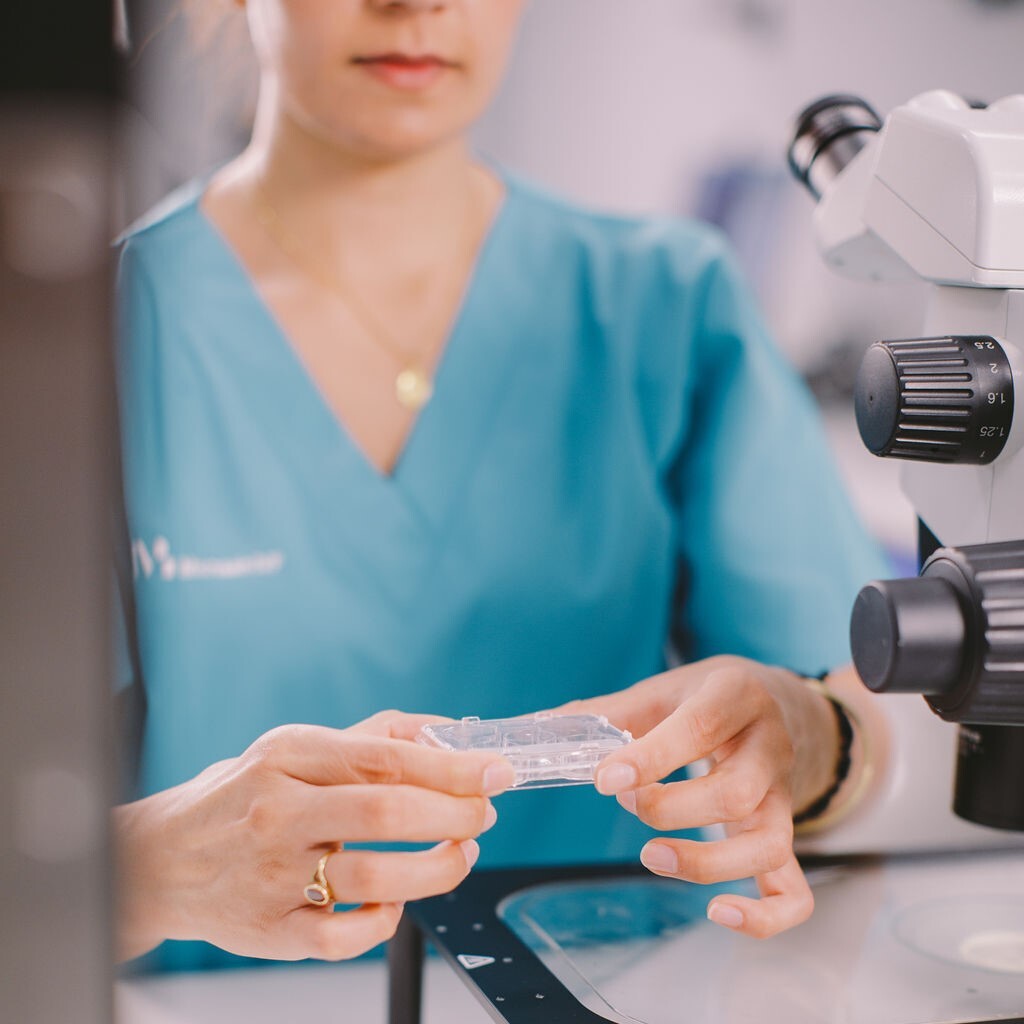
Evidence-Based Embryo Transfer
Transferring a single, high-quality embryo remains one of the most effective ways to achieve a healthy pregnancy. Research consistently shows that single blastocyst transfers improve live birth rates while reducing the risks associated with multiple pregnancies. To further support implantation, we use EmbryoGlue®, a solution enriched with hyaluronan that mimics the natural uterine environment and helps embryos attach to the uterine lining.
Safety, Traceability and Quality Assurance
Patient safety underpins every step of the IVF process. We use the ITM Matcher electronic witnessing system, a globally recognised platform that safeguards patient identity and ensures every sample is tracked and verified from egg collection to embryo transfer. Barcode scanning, photographic records, and auditable logs provide a complete chain of custody, while human double-witnessing adds an additional layer of verification during key stages.
Our laboratories also adhere to strict quality control standards. Air quality is carefully regulated using HEPA filtration, and all culture chambers and incubators are continuously monitored. Our labs also use positive pressure to ensure that air from the external environment does not enter, ensuring a consistently high quality of air inside our labs. Only the highest quality and tested culture media and consumables are used, and equipment undergoes rigorous testing and calibration to ensure reliable performance.
Ongoing Training
Our science team undergoes rigorous, specialised training to maintain the highest standards of precision, safety and care. This includes advanced education in reproductive science, extensive hands-on experience within the laboratory, and continuous professional development to ensure we remain at the forefront of emerging technologies and evolving best practices.
The Science Behind Every Success
Behind every successful IVF cycle is a combination of advanced technology, scientific expertise, and meticulous attention to detail. Our laboratories are where eggs are fertilised, embryos develop, and life begins. Through innovation, precision, and a commitment to safety, Monash IVF delivers world-class laboratory care that turns hope into reality. Every step of your journey, from fertilisation to embryo transfer, is shaped by the work we do in the lab, and its impact is at the heart of every new beginning.
Evidence & References
- Agerholm IE, Hnida C, Crüger DG, Berg FD. The use of hyaluronan-enriched transfer medium (EmbryoGlue®) in assisted reproduction: a systematic review and meta-analysis. RBMO. 2011;23(3):305–313.
- Agerholm IE et al. Hyaluronan-enriched transfer medium improves implantation and pregnancy rates. Hum Reprod. 2012;27(9):2619–2628.
- Sjöblom C, Wikland M, Robertson SA. Granulocyte-macrophage colony-stimulating factor (GM-CSF) in embryo culture media improves pregnancy outcomes. RBMO. 1999;18(4):495–501.
- Ziebe S, et al. Randomised controlled trial on the use of GM-CSF (EmbryoGen®/BlastGen®) in human IVF. Hum Reprod. 2013;28(1):37–45.
- Dumoulin JC, et al. Calcium signalling and embryo development in human IVF: emerging insights. Reprod Fertil Dev. 2020;32(2):211–220.
- Yagci A, Murk W, Stronk J, Huszar G. 2010. Spermatozoa bound to solid-state hyaluronic acid show chromatin structure with high DNA chain integrity: an acridine orange fluorescence study. Journal of Andrology, 31(6), pp.566–572.
- Ziebe et al. A randomised clinical trial to evaluate the effect of granulocyte-macrophage colony-stimulating factor (GM-CSF) in embryo culture medium for in vitro fertilisation. Fertil Steril. 2013 May;99(6):1600–9.

Start your fertility journey
Wherever you are on your journey, one of our supportive nurse enquiry team members can help you understand your options and take the next step. These conversations are free and informative.